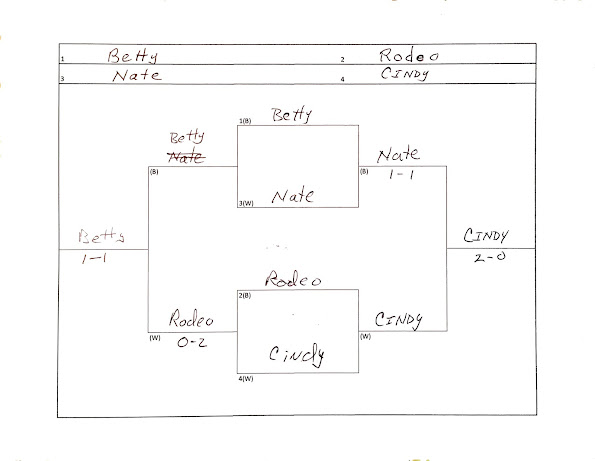How to Organize, Conduct, and Report a Four-Player Mini-Tourney
If you are a chess player, you know that tournaments are one of the best ways to improve your skills. The level of competition, the pressure, and the opportunity to face new opponents all contribute to the learning experience. However, organizing a tournament can be a daunting task. This is where mini-tourneys come in. Mini-tourneys are fun and easy to set up, and they provide an excellent opportunity to play with friends and improve your game. This article will guide you on organizing, conducting, and reporting a four-player mini-tourney using our provided outline.
1. Organizing the Tourney:
The first thing you need to do is decide on the venue for the mini-tourney. It could be at home, a coffee shop, a library, or any quiet place with a few tables and chairs. You can also decide on a convenient time and date for all the players.
Next, you must ensure that you have all the equipment for the mini-tourney. You will need two chessboards, chess pieces, clocks, a score sheet, and a pen.
Finally, you need to decide on the format of the mini-tourney. In this article, we will use the two-round bracket, where players will play against each other once.
2. Conducting the Tourney:
When the players arrive, explain to them the rules of the mini-tourney. Ensure that they understand the rules and the scoring system. Ensure all the equipment works and the chessboards are arranged in a quiet, comfortable space.
Start the first game by making the pairings and introducing the players to each other. Then, ensure that the clocks are set and the fun begins. After the first game, record the results on the score sheet and make a new pairing for the second game. First-round draws go to the lower-rated player!
3. Reporting the Tourney:
After the mini-tourney, you need to record the final rankings of the players. You can do this by calculating the points earned by each player. We will use the standard point system, where a win gets 1 point, a draw gets 0.5 points, and a loss gets 0 points.
After calculating the points, you can determine the players' rankings. The player with the highest number of points wins the mini-tourney. You can also choose the tie-breakers by looking at the head-to-head results, the result against the top player, the most wins, and the cumulative score of opponents.
4. Improve your Game:
A mini-tourney is an excellent opportunity to improve your game. After the mini-tourney, discuss the fun with the other players. Analyze the positions together and look for better moves and alternatives. Study the openings and the middle game. Look for mistakes and try to avoid repeating them in future games.
Conclusion:
A mini-tourney is a fun and easy way to play chess, improve your skills, and socialize with friends. It would be best to have a venue, equipment, and a format to organize, conduct, and report a four-player mini-tourney. Conduct the mini-tourney by making pairings, starting the game, recording the results, and making new pairings. You can report the mini-tourney by calculating the points earned by each player and determining the final rankings. Finally, analyze the games, learn from your mistakes, and improve your game. Have fun, and keep playing chess!




Comments
Post a Comment